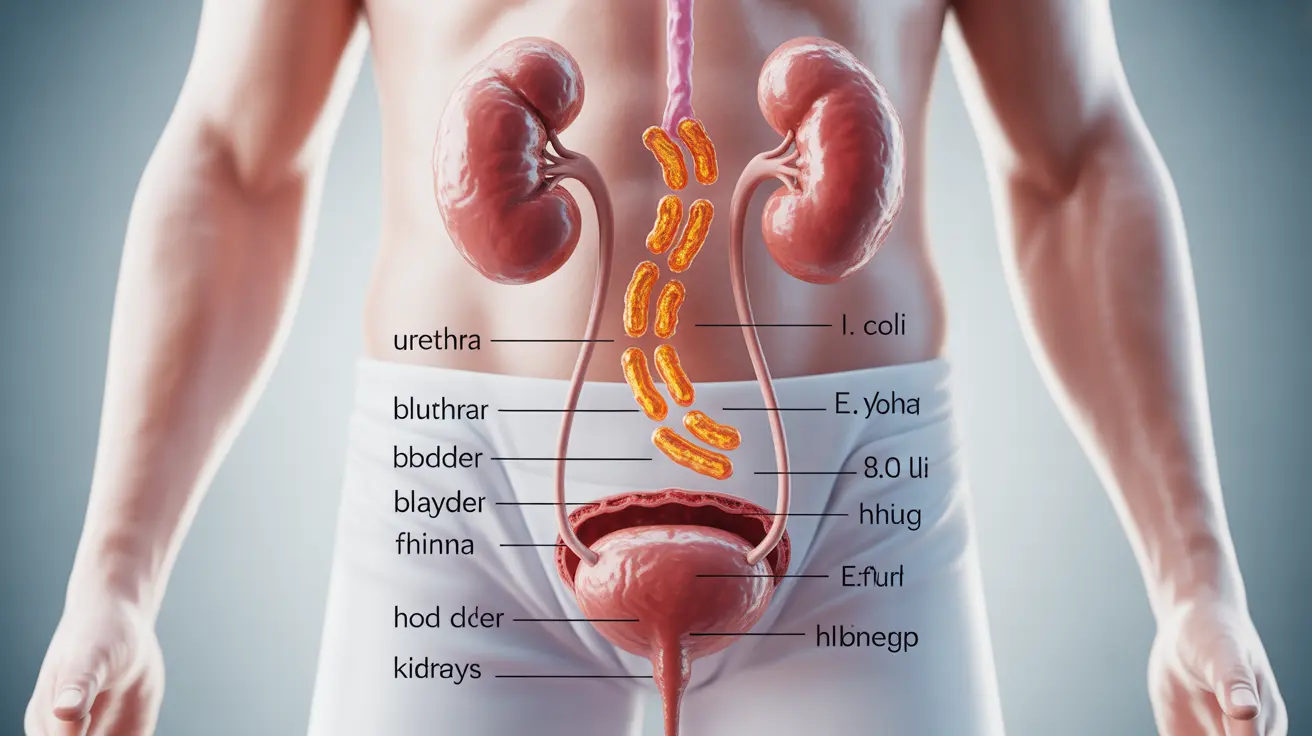Escherichia coli (E. coli) in urine is a common bacterial infection that accounts for approximately 80-90% of all urinary tract infections (UTIs). Understanding this condition is crucial for early detection and proper treatment, as untreated infections can lead to serious complications, including kidney damage.
While E. coli naturally exists in the human digestive system, its presence in the urinary tract can cause uncomfortable and potentially serious health issues. This comprehensive guide will help you understand the symptoms, causes, diagnosis, and treatment options for E. coli urinary infections.
Understanding E. coli UTIs
E. coli typically enters the urinary tract through the urethra, traveling upward to colonize the bladder and potentially the kidneys. These bacteria are particularly adept at adhering to the urinary tract walls, making them a frequent cause of both acute and recurring UTIs.
Common Symptoms and Warning Signs
When E. coli infects the urinary tract, it typically causes several distinctive symptoms:
- Frequent urination
- Burning sensation during urination
- Cloudy or dark urine
- Strong-smelling urine
- Lower abdominal pain or pressure
- Blood in urine (hematuria)
- Lower back pain (if infection reaches kidneys)
Diagnosis and Testing
Healthcare providers typically diagnose E. coli in urine through several methods:
- Urinalysis to check for signs of infection
- Urine culture to confirm E. coli presence
- Antibiotic sensitivity testing
- Physical examination and medical history review
Treatment Approaches
Treatment for E. coli urinary infections typically involves:
Antibiotic Treatment
Healthcare providers usually prescribe specific antibiotics based on sensitivity testing. Common options include:
- Nitrofurantoin
- Trimethoprim-sulfamethoxazole
- Fosfomycin
- Fluoroquinolones (in certain cases)
Supportive Care
Additional treatment measures often include:
- Increased fluid intake
- Over-the-counter pain relievers
- Urinary alkalinizers to reduce discomfort
- Heat therapy for pain relief
Prevention Strategies
Several preventive measures can help reduce the risk of E. coli urinary infections:
- Proper wiping technique (front to back)
- Regular urination
- Urinating after sexual activity
- Adequate hydration
- Good personal hygiene
- Wearing breathable cotton underwear
When to Seek Medical Care
Immediate medical attention is necessary if you experience:
- Severe back or side pain
- High fever
- Nausea and vomiting
- Confusion or mental changes
- Difficulty urinating
- Symptoms that worsen despite treatment
Frequently Asked Questions
- What are the common symptoms of Escherichia coli infection in urine?
Common symptoms include frequent urination, burning sensation while urinating, cloudy or dark urine, strong urine odor, lower abdominal pain, and sometimes blood in the urine. More severe infections may cause fever, back pain, and nausea.
- How is an E. coli urinary tract infection diagnosed and treated?
Diagnosis typically involves urinalysis and urine culture tests. Treatment usually consists of appropriate antibiotics based on sensitivity testing, along with increased fluid intake and pain management measures.
- What causes E. coli to enter the urinary tract and cause infections?
E. coli typically enters the urinary tract through the urethra, often due to poor hygiene practices, sexual activity, or anatomical factors. Women are more susceptible due to their shorter urethra length.
- How can I prevent E. coli urinary tract infections from occurring or recurring?
Prevention includes proper wiping technique, urinating after sexual activity, staying well-hydrated, maintaining good hygiene, wearing breathable underwear, and avoiding holding urine for long periods.
- When should I seek medical help for symptoms of an E. coli UTI or possible kidney infection?
Seek immediate medical attention if you experience severe back or side pain, high fever, nausea and vomiting, mental confusion, or if UTI symptoms worsen despite treatment. These could indicate a kidney infection requiring urgent care.




